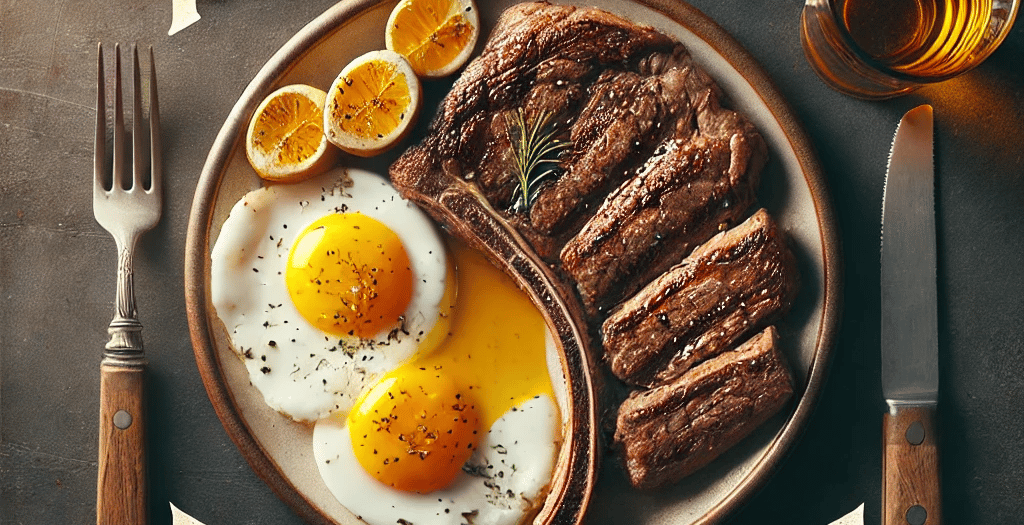Doctors Won’t Tell You This: The One Thing Sabotaging Your Health
Think carbs are essential? Think again. Cutting them may be the key to weight loss, steady energy, and better health. Learn why our bodies aren’t designed for constant carb intake—and how removing them can transform your life. 💡 Plus, grab our FREE Senior Fitness Guide for expert-backed nutrition and exercise tips to stay strong and independent.
3/5/20253 min read


Doctors Won’t Tell You This: The One Thing Sabotaging Your Health
For decades, we’ve been told that carbohydrates are essential for energy and a balanced diet. Yet, many people are discovering that reducing or eliminating carbs leads to better health, sustainable weight loss, and even the reversal of chronic diseases.
The reality? Our bodies weren’t designed to handle today’s constant flood of carbohydrates, and most people are unknowingly stuck in a cycle of blood sugar crashes, insulin resistance, and fat storage.
If you’ve struggled with energy levels, weight gain, or inflammation, cutting carbs may be the most powerful step you can take toward long-term health.
Carbs: A Modern Problem, Not an Essential Nutrient
Our ancestors never had access to carbohydrates in abundance year-round. Carbs were seasonal, found in fruits and tubers at certain times of the year, not something consumed at every meal.
Because of this, our bodies evolved to store fat when we ate carbohydrates—a survival mechanism designed to help us make it through food-scarce periods.
The problem? In today’s world, carbs are everywhere, all the time. Most people live in a constant state of excess carbohydrate consumption, forcing their bodies to stay in fat-storage mode instead of fat-burning mode.
This is why obesity, insulin resistance, and metabolic disorders are skyrocketing. Our biology hasn’t adapted to a world where processed carbs are available at every turn.
The good news? You can break free from this cycle by reducing carbs and allowing your body to function the way it was meant to.
What Happens When You Cut Carbs?
When you lower your carbohydrate intake, your body shifts into fat-burning mode, and powerful health benefits follow:
✅ Steady Blood Sugar & Insulin Levels – No more sugar crashes or cravings. Cutting carbs helps reverse insulin resistance and reduces the risk of type 2 diabetes.
✅ Faster & Sustainable Weight Loss – Your body starts burning stored fat for fuel instead of constantly storing it.
✅ Reduced Inflammation – Many chronic conditions—arthritis, gut issues, even brain fog—are linked to carb-driven inflammation. Lowering carbs can help.
✅ More Stable Energy – Instead of relying on the quick burn of sugar, your body learns to tap into fat for fuel, giving you long-lasting, stable energy throughout the day.
✅ Better Mental Clarity – The brain runs efficiently on ketones (fat-based energy), which improve focus, memory, and mood.
How to Cut Carbs the Right Way: Actionable Steps
Step 1: Eliminate Processed Carbs
❌ Ditch bread, pasta, rice, and cereals—they spike blood sugar and keep your body in fat-storage mode.
❌ Cut out sugary snacks and drinks (soda, fruit juices, candy, and even "healthy" granola bars).
✅ Better choices: Base your diet around whole, nutrient-dense foods:
Grass-fed meats, eggs, and organ meats
Wild-caught seafood
Healthy animal fats (butter, tallow, lard, ghee, raw dairy)
Low-carb vegetables like spinach, broccoli, and asparagus
Step 2: Replace Carbs with Healthy Fats
Instead of relying on carbs for energy, increase your intake of healthy fats to keep you full and satisfied.
✅ Best fat sources:
Animal fats (butter, tallow, lard)
Egg yolks
Avocados and olives
Fatty meats and fish
Avoid vegetable and seed oils (canola, soybean, sunflower)—they’re inflammatory and damage metabolism.
Step 3: Eat Protein First
Protein is the most satiating macronutrient and prevents cravings. Start every meal with a high-quality protein source to keep your metabolism strong.
✅ Best protein sources:
Beef, lamb, venison, goat, bison, and other red meats
Wild-caught salmon and sardines
Pastured chicken and pork
Eggs
Cheese and full-fat dairy (Unpasteurized if possible, if tollerated)
Step 4: Listen to Your Body & Adjust
Not everyone needs to go zero-carb or full carnivore. Some people thrive with small amounts of low-carb fruits or root vegetables. The key is cutting out the processed junk and finding what works best for you.
If you're coming from a high-carb diet, expect a short adjustment period (1-2 weeks) as your body switches from sugar to fat-burning. Stay hydrated, increase salt intake, and give it time!
Final Thoughts: Less Carbs, Better Health
Carbohydrates in excess are a modern problem, not a necessity. Our ancestors never ate the way we do today, and our bodies simply aren’t designed to handle constant sugar intake.
By reducing carbs and focusing on nutrient-dense, whole foods, you can:
✅ Lose weight naturally
✅ Have steady, long-lasting energy
✅ Reduce inflammation and chronic disease risk
✅ Improve focus, mental clarity, and mood
The best part? You don’t have to count calories or go hungry—just eat real food.
Want to Feel Stronger, Healthier, and More Energized? Get Your Free Senior Fitness Guide!
Improving your health isn’t just about what you eat—it’s also about staying strong and active as you age. That’s why we created the Senior Fitness Guide, a free resource that covers:
✅ The best exercises for strength, balance, and mobility
✅ Simple nutrition strategies to fuel your body and avoid disease
✅ How to stay independent and active for years to come
👉 Click here to download your free guide now!
Take control of your health today—your body will thank you.

